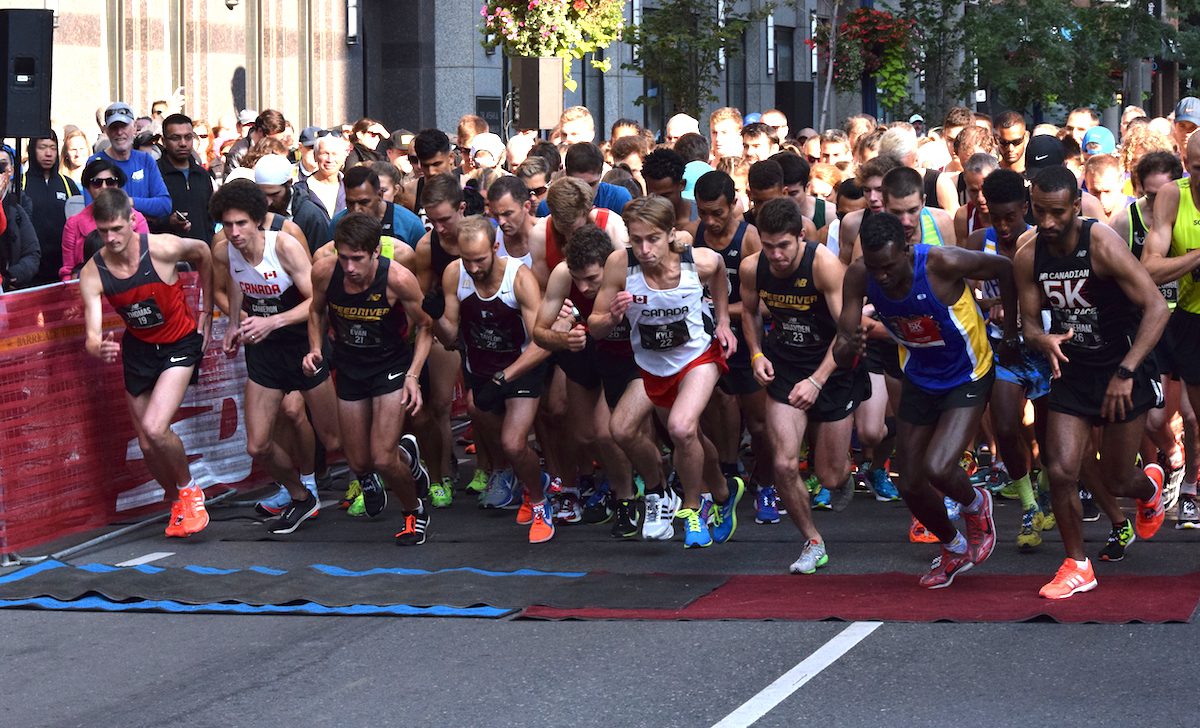Race Day Do’s and Don’ts


The most important and accurate piece of advice for race day success is a simple one: “Nothing new on race day.” A race is no place to try new shoes, experiment with your pre-race nutrition or run at a pace you’ve never run before. It’s essential to have a safe and proven routine that works for you and that you’re comfortable and familiar with.
RELATED: Twenty-one (point one) tips for running your best Half
A successful race day is the product of many things, but most important are to do all the little things right and control what variables you can.
In order to help you have an enjoyable experience, here are some of our race day DOs and DON’Ts
DO aim for at least two or three good nights of sleep before the event. DON’T stress out because you tossed and turned the night before.
DO set an alarm and get up early. DON’T stress out because you’re running late or may have forgotten something.
DO make sure you have everything ready to go the night/day before the event. Lay out your racing shoes and clothes as well as what you’ll wear before and after the event. Pin your race bib to your shirt. Pack a small bag with things you’ll want or need before and after the race. DON’T forget your shoes!
DO charge/set your watch or GPS device. If you’re using a pace band, DON’T forget to have it ready.
DO eat something the morning of the race. Regardless of the distance, you need to refuel the energy your body used overnight. Make sure you eat something that contains a bit of carbohydrate as well as protein. A bagel with peanut butter, oatmeal with nuts or seeds, or a banana and some energy drink are all good options. DON’T race on an empty stomach.
DO give yourself plenty of time to get to the start. Add at least 30 minutes more than you think it might take. DON’T forget the extra time it will take for the last minute porta-potty stop –there will be lines– and the time to drop off things at bag-check.
DO know exactly where you’re going. Plan in advance what route you plan to take to the event start whether via road, bike, public transit or walking as well as where you’ll park and how you’ll get to the start line. DON’T forget to consider where you’ll park and what roads may be closed for the race.
DO a short warm-up. Get your muscles ready for the race by running slowly and doing some dynamic stretches. Generally speaking, the shorter the race, the longer the warm-up. DON’T waste too much energy and time getting warmed up.
DO line up appropriately at the start. Unless there are specific corrals to separate runners, try to line up with others that will be running at or around the same pace as you. DON’T impede faster participants.
DO know the course. DON’T rely on others. Although event organizers do their best to ensure that a race course is properly marked and marshaled, you should always review a map of the course to familiarize and prepare yourself for what’s to come.
DO have a race plan. You should always have some idea as to how fast you plan to run and what pace you’ll need to do so. Running each kilometre at roughly the same pace is often the best strategy to produce your fastest time. DON’T go out too quickly at the start. Hold back to benefit
DO thank the volunteers and have fun. Remember you signed up for this. DON’T worry if your race isn’t going to plan or if something happens. There will always be another day.
DO have an exit strategy after the race. Once you’ve crossed the finish line, know what to do and where to go next. Most events offer post-race refreshments to help you quickly refuel and recover. If you’re meeting friends or family, plan in advance a place to meet-up. DON’T forget your medal. You earned it.
DO begin your recovery immediately. After any hard effort, your body needs time to recover from the stress of running a race. Be sure to rehydrate and refuel after the event. If you’re sore or in pain, consider a massage, some ice or make an appointment to see a physiotherapist. DON’T leave the finish area if you’re feeling ill or unwell. Seek an EMS or recovery service right away.
DO enjoy your accomplishment. Congratulations, you are one of few Canadians who run and race for your health, fitness and personal accomplishment. Celebrate your experience, share it with RaceGuide and start planning the next one. DON’T forget to register for your next race!

